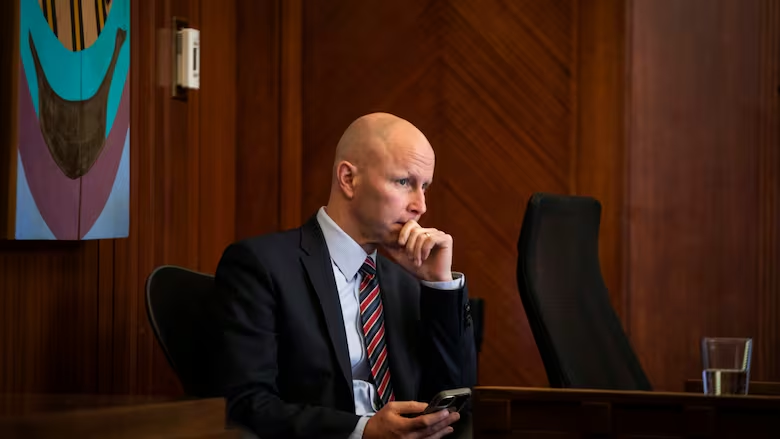Vancouver’s top administrative official, Paul Mochrie, is stepping down after more than a decade of service with the city. Mayor Ken Sim confirmed the news on Tuesday, marking the end of Mochrie’s four-year tenure as city manager and his 14-year career in senior leadership roles within Vancouver.
Sim said the decision came after mutual discussions. “Paul and I mutually agreed that it was the right time for a leadership change,” the mayor stated. “We thank Paul for his 14 years of dedicated service, including the last four as city manager, and wish him nothing but success in the future.”
Mochrie first joined the city’s leadership team more than a decade ago. He rose through the ranks and became deputy city manager before being appointed as city manager in 2021. He took over the position from Sadhu Johnston.
As city manager, Mochrie was responsible for overseeing nearly 10,000 employees. His office managed all department heads and acted as a bridge between city council and staff. Though the role is non-political, it plays a key role in the daily operations of the city and in carrying out the decisions of the council.
In 2023, Mochrie earned a salary of $387,110, making him the highest-paid city employee that year. Only the former Vancouver Police Department chief, Adam Palmer—who has since retired—earned more before his departure.
While the city begins its search for a permanent replacement, Deputy City Manager Karen Levitt will take on the role of acting city manager. Mayor Sim said that Mochrie will stay on for a transition period to ensure a smooth handover.
The city has not yet announced a timeline for hiring a new manager, nor has it shared details on the recruitment process. However, with Levitt stepping in temporarily, city operations are expected to continue without disruption.
Mochrie’s departure comes during a period of transformation for Vancouver. The city has been focusing on issues such as housing, public safety, climate action, and infrastructure development. A new leader will be expected to guide the city through these ongoing challenges while maintaining stability among staff and departments.
Karen Levitt, who now serves as acting city manager, has held leadership roles in the city for several years. Her experience and familiarity with ongoing projects are expected to help keep things on track during this interim period.
Leadership changes in city management are not unusual, especially after election cycles or shifts in policy direction. The mayor’s office has signaled that this transition is part of a larger effort to move the city forward with fresh perspectives.
The City of Vancouver is now preparing for a new phase. The next city manager will be responsible for carrying out council priorities, managing city services, and maintaining trust with both city staff and the public.
Residents and employees will be watching closely as the city begins the process of finding a new leader for its administration. For now, the focus is on a smooth handover and continued delivery of services across all departments.

